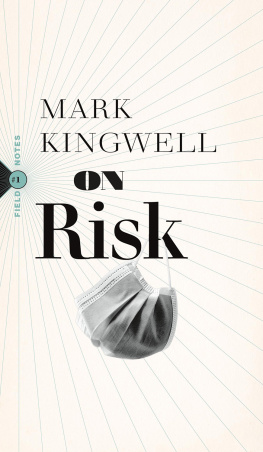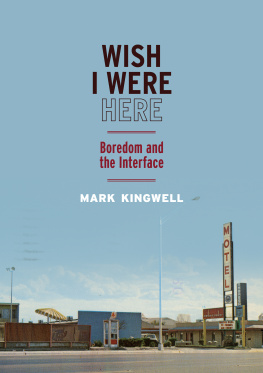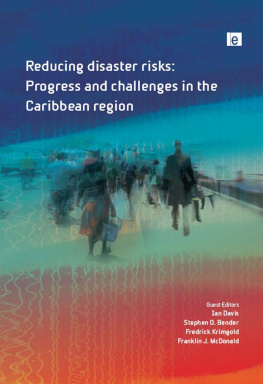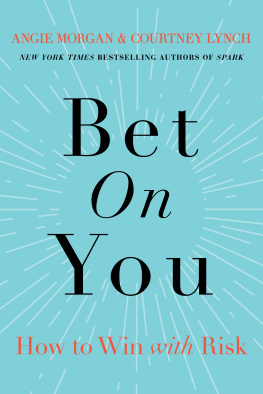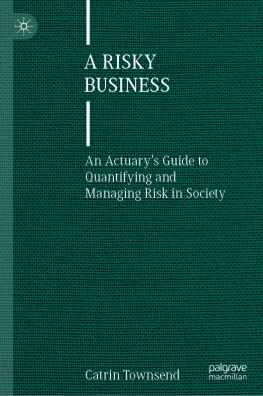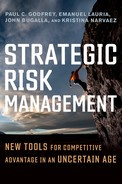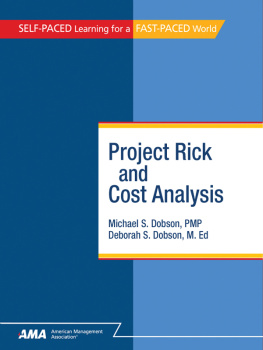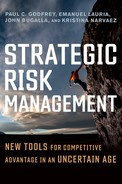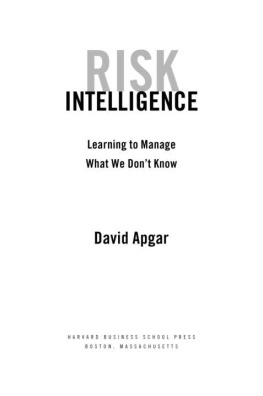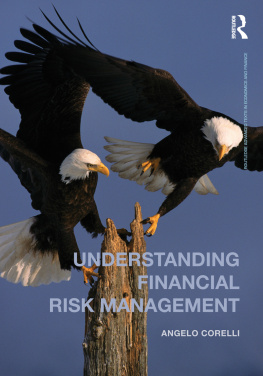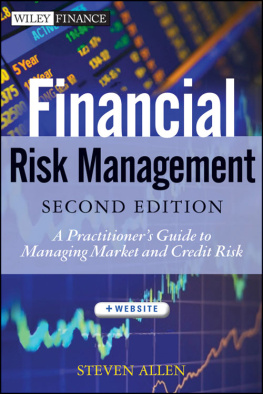On Risk
Or, If You Play, You Pay: The Politics of Chance in a Plague Year
Mark Kingwell
BIBLIOASIS
Windsor, Ontario
Twenty-volume folios will never make a revolution. Its the little pocket pamphlets that are to be feared.
Voltaire
Contents
I liked Mr. Josies face very much [I]t was a face that had not been sculptured for a quick or facile success. It had been formed at sea, on the profitable side of bars, playing cards with other gamblers, and by enterprises of great risk conceived and undertaken with cold and exact intelligence.
Ernest Hemingway, Pursuit as Happiness (2008)
A previously unpublished story about marlin fishing, drinking, and defeat. Ernest Hemingway, Pursuit as Happiness, New Yorker, June 1, 2020.
Preface:
The Plague Years
If you play, you paya simple truth. But some pay more than others, and a lot of the time, past winners keep on winning. Risk is theoretically neutral and indifferent, an exercise of pure randomness. But, as the 2020 pandemic has shown us, when natural forces meet social and cultural conditions, risk can get redistributed very fast. Were not really all in this together. The eternal human story is that some people win, others lose, and often the first is true only because the second is likewise. The current realities have offered a forced education in the politics of risk, a bleak tutorial on taking chances.
Education is, all by itself, what Gert Biesta calls a beautiful risklighting a fire, not filling a bucket, as Yeats said.
An old saying, sometimes attributed to Cicero, says this: To philosophize is to learn how to die. You may be wondering: What could this mean? Start with what it doesnt mean. Learning how to die does not mean that philosophy is a kind of nihilistic death cult, a sort of cabal of necronauts with one foot in the grave and the other on a metaphysical banana peel. True, we philosophers are perfectly capable of doubting the existence of rocks and trees, or believing that this entire ceremony is a simulation in some aliens supercomputer. But for the most part we live just like other people dothough with more free time and less fashion sense.
A more plausible interpretation of learning how to die is the one held by the Stoic philosophers. Death is the ultimate inconvenient fact, the outcome we cannot alter. We can be smart about how to estimate and even be just about the entailed risks of a mortal existence. We can embrace this nothingness, at the limit, and thus defeat the fear of dying. This then opens up the only immortality known to humans, namely, living on in the memory of others.
Which sounds great. But as Woody Allen once said, I dont want to live on in the hearts of my countrymen. I want to live on in my apartment.
No, I think learning how to die really means living with a sense of urgency and purpose. Only the presence of a deadline can provide this. The added twist is that we dont know, exactly, when the deadline will fall.
Which brings me to risk in a more physical sense. In 1984, I met a man called Raymond Eric Bill Loverseed. Loverseed was a colleague of my fathers at De Havilland Aircraft, a former member of the Royal Air Forces Red Arrows demonstration team. My father logged more than two thousand air hours as a senior navigator in the Canadian military. As with all course plotters, who just have to sit there while pilots do the flying, he was a keen judge of character. At De Havilland he had survived a couple of close calls with Loverseed at the controls. An awfully good pilot, my father told me on one occasion. But he took some wild chances.
Aviators know that every flight entails a risk and every crash is a failure. They also know, however, that there are three kinds of crashes: good crashes, bad crashes, and last crashes.
In 1984, when I met him in London, Loverseed was flying a DHC-5 Buffalo transport plane at the Farnborough Airshow. The highlight was a low pass over the demonstration area, the plane just a couple of metres off the ground. That day, the Hampshire wind backed on him and the plane lost lift suddenly. Loverseeds airspeed was too low to compensate, the plane stalled, and then dropped like a stone. It slammed into the runway and slid to a point a few hundred yards from a crowd of spectators, including me.
That was a good crash: everybody present walked away. I, for one, walked away to get a stiff drink.
Three years later, Loverseed was ferrying a Piper Cherokee from the United States to Britain when he hit a storm off the coast of Newfoundland. The wings of the small plane iced up, and the aircraft plunged almost three thousand metres into dense forest, tearing off both wings as it went. Loverseeds foot was crushed and it was sixteen frigid hours before he was rescued. That was a bad crash.
Then, in 1998, test-flying a De Havilland Dash 7 over Devon after taking off from the Channel Island of Guernsey, he developed engine trouble; the aircraft dipped, and slammed into a hillside near Bickington. Loverseed was killed, as was another colleague of my fathers, Adam Saunders of Toronto. That was a last crash.
We can never stop accepting the next flight, the next mission. The last crash makes every hour in the air that much sweeter. And we must all remember the hopeful and sometimes wild command of every pilot as her or his plane sets up at the end of the runway: Full power now, please.
* * *
I had been writing about risk, specifically in political terms, for some time when the novel coronavirus that produces the disease COVID-19 upended the global order in the pandemic of 2020. Suddenly all thoughts of life risk were reordered. We had all considered, whether idly or urgently, according to circumstance, the chances of death or dismemberment that might attend a given choice or activity. We had, most of us, or those who could afford it, taken out insurance policies of various kinds to stake an odds-based claim on the uncertain future. Few of us, if we were not extremely ill or soldiers or oil-rig workers or North Pacific fishermen, had considered death to be a daily prospect in need of consideration.
And yet of course it was, because it always is. You might get struck by a bus while blithely crossing the street, or gunned down in street crossfire during a drug deal gone wrong, or succumb to pilot error and structural weakness as a jetliner plunges into the sea. The fact that the odds of these mortal occurrences remained lowlower, we were always told, than drowning in your own bathtub or falling to a broken neck off an aluminum utility laddermight diminish, but could never eliminate, the element of risk that attends each moment of human existence.
The world of the virus made all of this more vivid, and more confused. The slogans that predominated in the early weeks of social distancing and self-isolationWere all in this together and The virus doesnt discriminatewere belied by uncomfortable realities. The American death toll alone, about a quarter of the global figure, rose to 80,000 in early May 2020, then past 140,000 in July, with some experts predicting as many as 100,000 new cases every day. This was, as of the Fourth of July, more than the combined fatalities of the Korean, Vietnam, Gulf, Iraq, and Afghanistan wars. At the same time, it was increasingly clear that social and economic fault lines rendered the virus very uneven in distribution. The poor, Black, Latino, aged, and Indigenous sectors of the population were far more vulnerable than other demographic slices. God forbid you should suffer from an intersection of more than one of those descriptors, since that would drive your expected mortality far higher. Risk is never just a matter of mathematical odds; it is also, and always, a matter of who you happen to be demographically. The former is stark but implacable; the latter is frightening but open to potential partial correction.

